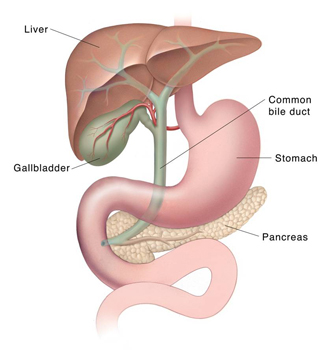Pancreatic Cancer Is on the Rise
October 2014
Pancreatic Cancer Is on the Rise
Scientific breakthroughs have made a big difference in finding and treating some of the most common cancers. For example, mammography has made it easier to find breast cancer early. The same can’t be said for pancreatic cancer. The disease remains hard to detect and treat. That’s one reason why experts predict more deaths from it in the future.
Cancer projections
Pancreatic cancer is a deadly disease. Of those who are diagnosed with it, less than 7% survive for 5 or more years. That’s mainly because it’s often found too late to effectively treat. Fortunately, this type of cancer isn’t very common. But the number of cases may double in the next 20 years.
In a recent study, researchers wanted to project the number of cancer cases and deaths in the U.S. They looked at all types of cancers, including pancreatic. They based their analysis on current cancer rates and future changes in the population. For instance, they took into account the growing number of older adults.
The top cancer killers now are those of the lung, prostate, breast, and colon. By 2030, though, that lineup may change. From their calculations, researchers found pancreatic cancer will jump from the fourth to the second deadliest cancer in the U.S. It will rank behind only lung cancer. This shift is partly the result of better screening and treatment options for other cancers, such as that of the colon.
A deep-rooted problem
The pancreas is a small organ. It mainly helps you digest food and your body make hormones. Located behind the belly, it’s deep within the body. This location is part of the problem. Pancreatic cancer is hard to find early on. And doctors aren’t yet able to screen for it.
Pancreatic cancer also rarely causes early symptoms. Most people with the disease don’t know they have it until it has spread to other parts of the body. They may then notice:
A yellowing of the skin and eyes (jaundice)
Pain in the stomach or back
Unexpected weight loss
A lack of appetite
Nausea and vomiting
Blood clots in the legs
Having one or more of these symptoms does not mean you have pancreatic cancer. Other health problems can cause you to have these symptoms. It is important to have any symptoms checked by your health care provider in order to find and treat the cause.
Surgery is the main treatment choice for pancreatic cancer. But it often isn’t able to be done. Newer therapies, though, may make a difference in survival rates. These include drugs that target specific parts of a cancer cell. One day a vaccine may be able to boost a person’s immune system against the disease.
Are you at risk for pancreatic cancer? Older adults and those who smoke are more likely to develop it. Read more about other risk factors for the disease.
Could Newly Diagnosed Diabetes Be a Sign of Pancreatic Cancer?
Scientists have long noted a link between diabetes and pancreatic cancer. People with diabetes are actually twice as likely to develop that type of cancer. The risk seems highest within the first year after getting diagnosed with diabetes.
What might be the connection? Pancreatic cancer and diabetes share a common origin: the pancreas. This organ helps make insulin—the hormone that keeps blood sugar levels at a healthy level in the body. Pancreatic cancer may alter how well the pancreas does this task. The result: high blood sugar levels—the hallmark of diabetes.
Online resources
Updated:
March 21, 2017
Sources:
Association of Diabetes Mellitus and Pancreatic Adenocarcinoma: A Meta-Analysis of 88 Studies. P. Batabyal, et al. Annals of Surgical Oncology. 2014;21(7):2453-62., Pancreatic Cancer: A Comprehensive Review and Update. T. Muniraj, P.A. Jamidar, and H.R. Aslanian. Disease-A-Month: DM. 2013; 59(11):368-402., Projecting Cancer Incidence and Deaths to 2030: The Unexpected Burden of Thyroid, Liver, and Pancreas Cancers in the United States. L. Rahib, et al. Cancer Research. 2014;74(1):2913-30., The Epidemiology of Pancreatitis and Pancreatic Cancer. D. Yadav and AB Lowenfels. Gastroenterology. 2013;144(6):1252-61.
Reviewed By:
Turley, Ray, BSN, MSN
